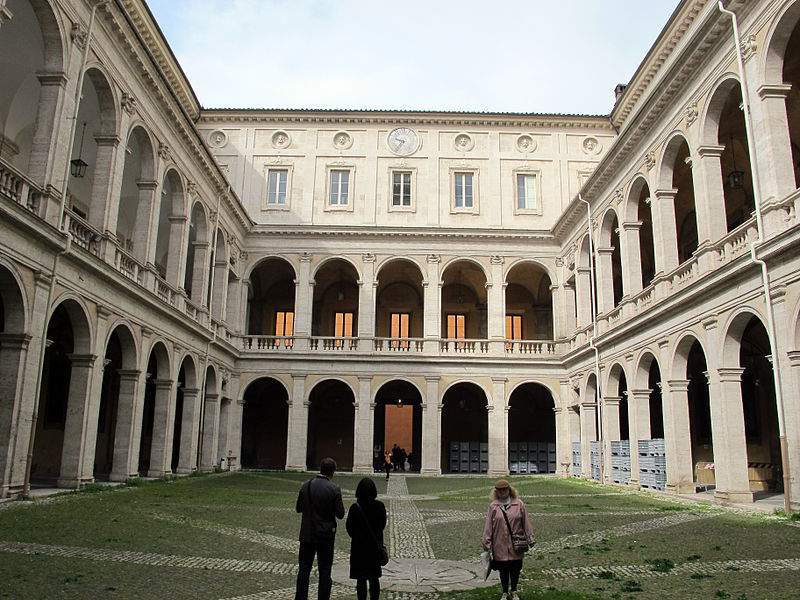Free photos can now be taken at archives and libraries
The amendment to Article 108 of the Cultural Heritage Code comes into effect today, Tuesday, August 29, thanks to which the free reproduction of goods kept in archives and libraries is henceforth permitted: until now, in fact, the reproduction of documents and books was subject to the acceptance of a request for authorization and the payment of a fee. Therefore, users of archives and libraries, from today, will be able to take free photos by their own means: so green light to cameras, smartphones or otherwise means that do not involve direct contact with documents, for example scanners and photocopiers. Banned instead are the use of flash and support tools such as tripods and tripods.
This amendment to the Cultural Heritage Code represents the victory of a long-standing battle in which the Free Photographs for Cultural Heritage movement, coordinated by archaeologist Mirco Modolo, has been active at the forefront: it is to them that much of the credit must be given for this important innovation, which will allow all users of archives and libraries to take photographs without asking for permission and without paying anything. Moreover, photographs will also be able to be freely disseminated on a nonprofit basis. However, professional reproductions made by photographers or specialized firms will remain subject to permits and fees. “The liberalization,” the movement declares, “represents a remarkable civil progress, made possible also thanks to the discussion with the Mibact, which favored the approval of a measure to support those who, through study, contribute every day to the valorization of documentary sources, but which at the same time will have the effect of reinforcing the fiduciary relationship that should always bind users to the administration of archives and libraries.”
Here specifically is the new rule as specified in the amendment to Article 10, paragraphs 3 and 3 bis, of the Cultural Heritage Code: 3 . No fee is due for reproductions requested or carried out by private individuals for personal use or study, or by public and private entities for purposes of enhancement, provided they are implemented on a non-profit basis. However, applicants are required to reimburse the expenses incurred by the granting administration.
3-bis. The following activities, carried out on a non-profit basis, for purposes of study, research, free expression of thought or creative expression, promotion of knowledge of cultural heritage, are in any case free:
(1) the reproduction of cultural property other than archival property subject to restrictions on accessibility under Chapter III of this title implemented in compliance with the provisions protecting copyright and in ways that do not involve any physical contact with the property or the exposure of the same to light sources, nor, within cultural institutions, the use of stands or tripods;
2) the dissemination by any means of images of cultural property, legitimately acquired, in such a way that they cannot be further reproduced for profit .
Image: the Palazzo della Sapienza in Rome, home of the local State Archives. Credit.
 |
| Free photos can now be taken at archives and libraries |
Warning: the translation into English of the original Italian article was created using automatic tools. We undertake to review all articles, but we do not guarantee the total absence of inaccuracies in the translation due to the program. You can find the original by clicking on the ITA button. If you find any mistake,please contact us.





























